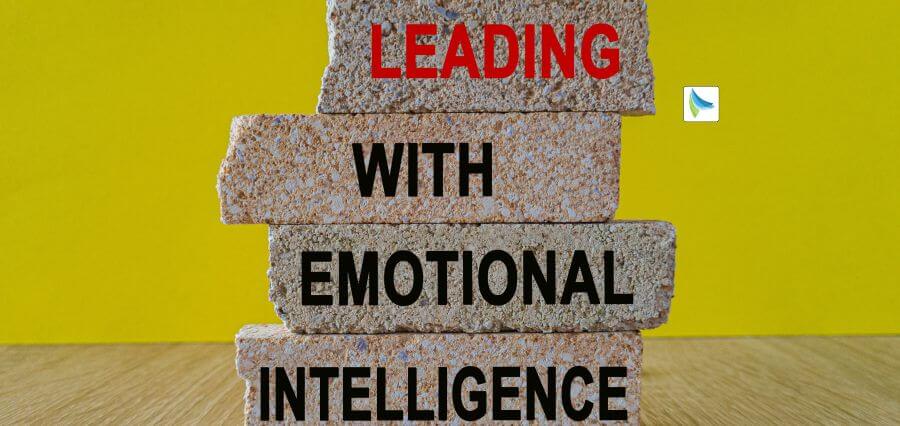Leadership nowadays is not so much about decision-making and strategy. It is more about self-awareness, empathy, and the capacity to connect with people on a human level. In a time of hyper-change and constant challenge, leadership coaches are focusing more than ever on mindfulness and emotional intelligence as key components of great leadership. Mindful leaders make better decisions, and they foster cultures of collaboration, creativity, and resilience. Understanding the relationship between mindfulness and emotional intelligence is essential to leaders who want to inspire, adapt, and thrive.
The Shift to Mindful Leadership
Historically, leadership frameworks have been authority-, problem-solving-, and efficiency-driven. But the modern business environment calls for something more holistic—something that reconciles strategy with emotional intelligence, presence, and flexibility. The shift towards mindful leadership rests on the assumption that leaders who build self-awareness and emotional regulation will build stronger teams and deliver stronger business outcomes.
Mindfulness leadership is being present in the moment, clear decisions, and responding instead of reacting to problems. This creates more concentration and emotional strength so that leaders can better handle stress, ambiguity, and high-stakes situations. Mindfulness techniques are being used more and more in leadership development training by executive coaches to instruct executives in the skill of stepping back, reflecting, and addressing problems with an even higher level of calm. By adopting mindfulness, leaders create a culture of psychological safety, which enables their teams to thrive.
Emotional Intelligence as the Pillar of Effective Leadership
Emotional intelligence is commonly seen as one of the best predictors of effective leadership. Emotional intelligence is defined by self-awareness, self-regulation, motivation, empathy, and excellent interpersonal skills. These traits enable them to build trust, manage conflicts effectively, and develop stronger professional relationships.
A leader’s emotional intelligence and ability to control emotions have a direct impact on how they interact with teams. Emotional intelligence dictates communication styles, decision-making under pressure, and many more. Leaders with high emotional intelligence are resilient, open to feedback, and can handle tough conversations tactfully. They are also able to understand the desires and concerns of employees and help establish a work environment in which human beings feel valued and motivated.
Coaching for leadership has increasingly centered on emotional intelligence training because it raises the capacity of a leader to motivate and engage his/her teams. Organizations that emphasize emotional intelligence in leadership development are bound to experience enhanced teamwork collaboration, employee job satisfaction, and overall business performance.
The Coaching Practice as it Supports Mindful Leadership Development
Executive coaching has also transformed to center on personal and professional development. Leaders are coached by their mentors to incorporate mindfulness practices into their schedules so that they stay engaged, empathetic, and emotionally balanced. Executive coaching teaches leaders how to keep an eye on their emotions, manage stress, and enhance the ability to connect with their employees emotionally.
One of the greatest advantages of leadership coaching is increased self-awareness. Leaders who know how they think and what their hot buttons are make more thoughtful choices instead of choosing in the heat of the moment. Coaching activities assist leaders to become aware of unconscious biases, be more patient, and fine-tune decision-making processes.
Another important area of leadership coaching is stress management. Heavy-pressure responsibilities are liable to exact a physical and psychological toll from a leader as well as erode their judgement. Mindfulness activities like meditation, journaling, and deep-breathing exercises with slow breath cycles have proven to enable leaders to stay cool and concentrated even under the most critical circumstances. Leaders who learn to manage stress in the appropriate way not only function better individually but also pass on a healthier and more serene work environment.
Building a Workplace Culture on Emotional Intelligence
Development of individuals is not the only priority of leadership; it also shapes organizational culture. Organizations that incorporate emotional intelligence and mindfulness as part of their corporate culture make workplaces where staff are empowered, motivated, and encouraged. Communication style, giving feedback, and collaboration displayed by a leader are the standards against which the company measures how its teams operate.
Fostering open communication, listening, and welcoming are the core elements of a workplace culture founded on emotional intelligence. Employees do their best work when they perceive that they’re being heard and valued. An emotionally intelligent leader leads by their own example and inspires employees to do the same in their intercommunications with others and with clients.
Firms that invest in mindfulness- and emotional intelligence-driven leadership development will likely experience concrete returns, such as increased employee engagement, lower turnover, and enhanced productivity. A few of the globe’s most successful firms, such as Google, LinkedIn, and General Mills, have implemented mindfulness programs to drive leadership effectiveness and overall workplace well-being. These initiatives have led to increased employee satisfaction, increased collaboration, and enhanced business results.
The Future of Leadership: A Mindful and Emotionally Intelligent Way
As companies continue riding the waves of digitalization, blended workplaces, and global interdependence, leadership will need to be more emotionally intelligent and attuned. Being able to genuinely empathize, motivate teams, and build flexibility will be the hallmark of next-generation successful leaders. Emotional intelligence is no longer a nice-to-have skill—it is a leadership necessity that fuels long-term growth and innovation.
Emotionally aware and intelligent leaders are more equipped to lead with purpose, ride through uncertainty, and create long-term change. By embedding these values into leadership development and organizational culture, companies can develop powerful, resilient teams and become sustainable in the long term. Leadership’s future is not strategy and expertise but a capacity to lead with awareness, compassion, and emotional resilience.
Read Also: Advancements in Electrochemical Technology for Sustainable Energy Solutions













